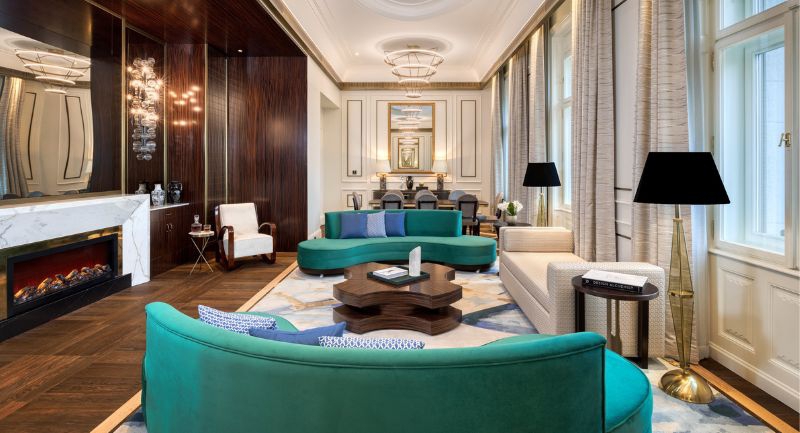
Best of Budapest & Hungary
Measure of Quality
Matild Palace, a Luxury Collection Hotel, Budapest wins the XXVth FIABCI Hungarian Prix d'Excellence Hotel category
The reconstruction of the Matild Palace building won first prize in the Hotel category, the second prize in the overall competition and the third prize as the Best Project voted by the participants. The hotel has thus won the right to participate in the international round of the competition and to represent our country in the FIABCI World Prix D`Excellence international excellence competition, sponsored by the World Street Journal.
The Hungarian chapter of the FIABCI, the world's largest real estate association, founded in 1951 and based in Paris, organised the Hungarian Hungarian Prix d'Excellence for the 25th time this year, a real estate development competition that takes maximum account of professional criteria. This year, entries were received from almost every country on the five continents for this special anniversary event, and the entries were judged by a jury of Hungarian and invited foreign experts.
The latest and most comprehensive historic preservation and renovation process of Matild Palace started in 2017, based on the plans of architects Péter Dajka and Dr. Antal Puhl. It has taken four years to fully restore the building to its original splendour, so that in 2021 it can return as one of the architectural gems of the Hungarian capital. The neo-baroque UNESCO World Heritage site also saw the debut of Europe's first Spago by Wolfgang Puck, now a Michelin-recommended restaurant, and The Duchess, a rooftop bar with spectacular views. And the former Belvárosi Kávéház, reborn as the Matild Café & Cabaret, offers a fresh and glamorous experience to local and foreign audiences as a prominent venue for cultural and gastronomic events.
The aim of the development of the Southern Klotild Palace was to transform this historically significant building into a five-star hotel, thereby preserving its rich heritage and securing its enduring and purposeful existence. The architectural objective was not only to preserve the protected internal historic spaces, the original circulation system and the spatial logic of the building, but also to transform them to the benefit of the building. The main protected spaces, such as the café, the staircases and the facade should not only be preserved as a "museum" but should be brought to life according to their original function, so that they become an integral and inseparable part of the hotel building. The architectural planning of both the active and passive components of the building explicitly prioritized environmental sustainability. It aimed to minimize energy consumption while maintaining utmost regard for the historical surroundings. The renovation also had an urban development impact, as Duna utca, previously a passageway street, was brought to life by the creation of catering terraces and the Váci utca, a pedestrian street with a high footfall and popular with tourists, was opened up to real front windows.
"We have invested considerable effort in the historical renovation project of the palace, and the final outcome is truly remarkable. Each day, as we explore the hotel, we continue to be captivated by various details and the overall atmosphere. The rich history embedded in these walls serves as a reliable compass for our future endeavors. Our ongoing commitment is dedicated to shaping a promising future for both the hotel and Matild Palace. We aspire to reflect on our accomplishments with the same pride that our predecessors felt for their contributions, several decades from now," said Selim Ölmez, General Manager of Matild Palace, upon receiving the prestigious accolade.




